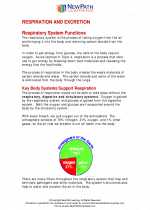Introduction to Linguistic Anthropology
Linguistic anthropology is a subfield of anthropology that examines the relationship between language and culture. It explores how language is used as a tool for communication, socialization, and the expression of cultural identity.
Key Concepts
- Sapir-Whorf Hypothesis: This theory suggests that the structure and vocabulary of a language shapes the perceptions and worldviews of its speakers.
- Language and Power: Linguistic anthropologists study how language can be used to exert power and influence within social and political contexts.
- Language Variation: The study of how language varies across different social groups, regions, and contexts.
- Language Socialization: Examining how individuals learn and internalize language within their cultural communities.
Methods of Study
Linguistic anthropologists use a variety of methods to study language and culture, including:
- Fieldwork: Immersion in a specific cultural and linguistic community to observe and document language use in everyday contexts.
- Discourse Analysis: Examining the use of language in various social interactions, such as conversations, rituals, and storytelling.
- Historical Linguistics: Tracing the historical development and evolution of languages within different cultural groups.
Applications of Linguistic Anthropology
Linguistic anthropology has practical applications in areas such as:
- Language Preservation: Working to document and revitalize endangered languages and dialects.
- Language Policy: Informing policies related to multilingualism, education, and language rights within diverse societies.
- Cross-Cultural Communication: Understanding how language differences impact intercultural communication and collaboration.
◂Science Worksheets and Study Guides Eighth Grade. Respiration and excretion
Study Guide Respiration and excretion
Respiration and excretion  Worksheet/Answer key
Worksheet/Answer key Respiration and excretion
Respiration and excretion  Worksheet/Answer key
Worksheet/Answer key Respiration and excretion
Respiration and excretion  Worksheet/Answer key
Worksheet/Answer key Respiration and excretion
Respiration and excretion  Vocabulary/Answer key
Vocabulary/Answer key Respiration and excretion
Respiration and excretion  Vocabulary/Answer key
Vocabulary/Answer key Respiration and excretion
Respiration and excretion  Vocabulary/Answer key
Vocabulary/Answer key Respiration and excretion
Respiration and excretion  Vocabulary/Answer key
Vocabulary/Answer key Respiration and excretion
Respiration and excretion 

 Worksheet/Answer key
Worksheet/Answer key
 Worksheet/Answer key
Worksheet/Answer key
 Worksheet/Answer key
Worksheet/Answer key
 Vocabulary/Answer key
Vocabulary/Answer key
 Vocabulary/Answer key
Vocabulary/Answer key
 Vocabulary/Answer key
Vocabulary/Answer key
 Vocabulary/Answer key
Vocabulary/Answer key
